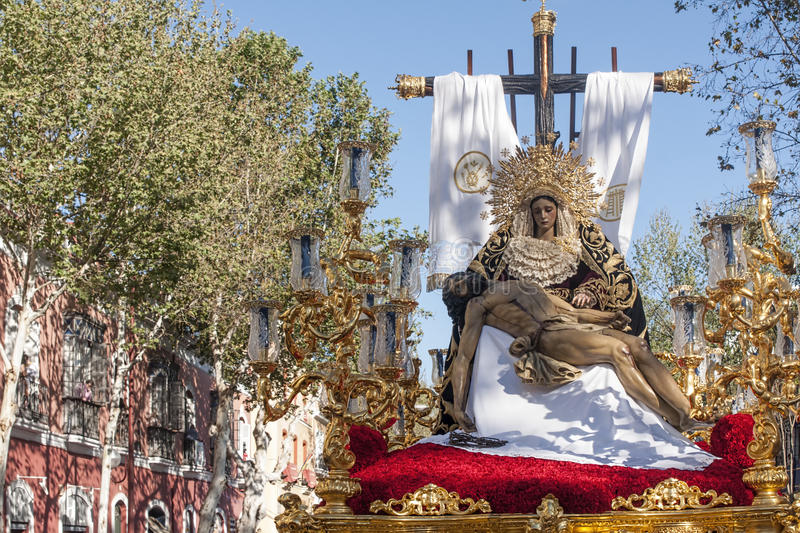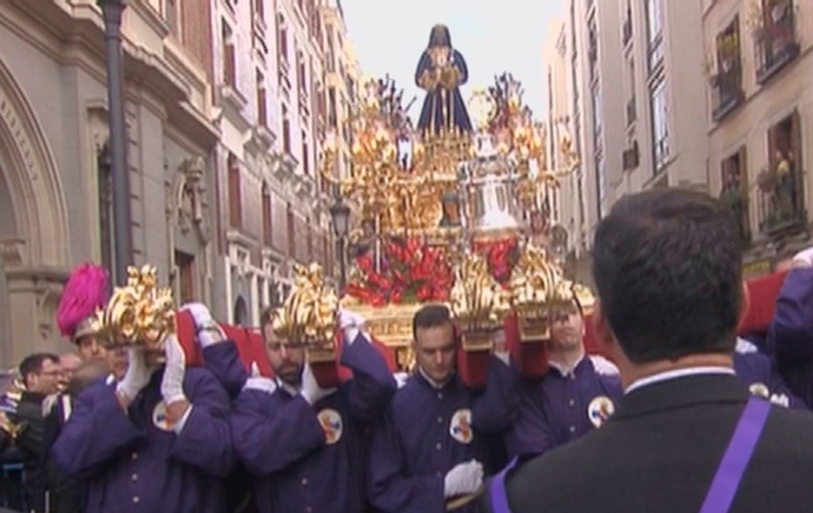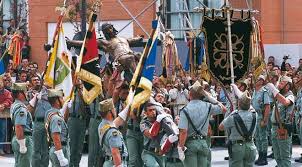Easter Week
Easter Week in Spain is a very important religious and cultural celebration in which processions and other celebrations play an important role, especially in cities such as Seville, Cordoba, Malaga, Madrid, although in most cities there are religious activities. During Holy Week. In these celebrations, religious processions take place in which the local brotherhoods and confraternities carry their pasos (religious images) through the streets of the city.
The processions usually begin on Palm Sunday and continue until Easter Sunday. During this time, the streets fill with people who come to see the pasos and accompany the brotherhoods. Many people also carry olive branches on Palm Sunday as a symbol of Jesus’ triumphal entry into Jerusalem.
In addition, there are many other religious and cultural celebrations that take place during Holy Week in Spain, such as re-enactments of the Passion of Christ, sacred music concerts and food and craft fairs.
If during your Holy Week trip, you wish to exchange foreign currency, please visit our offices and we will offer you the best rates in the area, with no additional commissions. Our offices in Malaga, Valencia, Barcelona and Madrid will be open during all public holidays. For the rest of the offices we invite you to consult our opening hours. We will be pleased to help you to enjoy your business trip or holidays.
From EUROPOUND we wish you a Happy Easter and a pleasant stay.
Easter Week in Seville
 Easter Week in Seville is one of the most important and exciting liturgical celebrations in the city. It begins on Palm Sunday and ends on Easter Sunday. Throughout the week, there are numerous processions, some of which are very long and can last up to 12 hours.
Easter Week in Seville is one of the most important and exciting liturgical celebrations in the city. It begins on Palm Sunday and ends on Easter Sunday. Throughout the week, there are numerous processions, some of which are very long and can last up to 12 hours.
Throughout the week, the streets are filled with processions and the city is transformed into a spectacle of faith, art and culture.
The local brotherhoods and confraternities take to the streets with their floats, impressive works of religious art, for locals and visitors to contemplate as they slowly make their way through the streets of Seville. The costaleros, beneath the pasos, show off their skill and strength, making them the centre of attention.
Each brotherhood has its own procession, which starts in its church and goes through the streets of the city until it reaches the Cathedral of Seville. During these processions, the members of the brotherhood wear tunics and capirotes, and many carry lighted candles.
The atmosphere is special and unique. The music of the bands accompanying the pasos, the saetas sung from the balconies and the smell of incense make Holy Week in Seville a multi-sensory experience.
It is a deep-rooted tradition in Seville and attracts thousands of visitors every year. The city is decked out for the occasion and a very special atmosphere is created. If you have the opportunity to visit Seville during Holy Week, I recommend you to do so, as it is a unique and unforgettable experience.
Cordoba and Easter Week
 Holy Week in Cordoba is synonymous with devotion and solemnity. During this week, numerous processions take place through the streets of the city, in which the floats are accompanied by music and chants.
Holy Week in Cordoba is synonymous with devotion and solemnity. During this week, numerous processions take place through the streets of the city, in which the floats are accompanied by music and chants.
The processions in Cordoba are organised by the different brotherhoods, each of which is responsible for carrying out its own procession. During the processions, the religious images are carried on floats adorned with flowers, candles and other ornaments. In Cordoba, the processions are more sober and less crowded than in other Andalusian cities such as Seville, but no less exciting and with great devotion. It is common to see women in black mantillas and men in dark suits and ties in the streets. In addition, the city is decorated for the occasion and altars and pasos are placed in the streets and in the religious temples.
Holy Week in Cordoba begins with the Palm Sunday procession, which commemorates the triumphal entry of Jesus into Jerusalem. During the week, there are numerous processions that go through the streets of the historic centre of Cordoba, such as the procession of Cristo de Gracia, the procession of Esperanza (Hope) or the procession of Silencio (Silence).
Each procession has its own characteristics and peculiarities, but all of them are an example of the devotion and respect felt for Holy Week in Cordoba.
Holy Week in Cordoba is one of the most outstanding in Andalusia and attracts numerous visitors every year. If you have the opportunity to visit Cordoba during Holy Week, don’t miss the chance to experience this impressive religious celebration.
Easter celebrations in Madrid
 Although Semana Santa is not as widely celebrated in Madrid as in other cities in Spain, there are still some religious processions and events that take place during this week.
Although Semana Santa is not as widely celebrated in Madrid as in other cities in Spain, there are still some religious processions and events that take place during this week.
The most prominent procession is the Procession of Silence, which takes place on the night of Maundy Thursday and runs through the historic centre of Madrid. During the procession, the members of the brotherhood wear purple habits and hoods, and great silence is maintained in respect for the solemnity of the occasion.
In addition to the Procession of Silence, there are other religious processions and events that take place in Madrid during Holy Week, such as the procession of Nuestro Padre Jesús del Gran Poder, the procession of Nuestro Padre Jesús de Medinaceli or the procession of the Virgen de la Soledad. In addition to the religious celebrations, Holy Week in Madrid is also an opportunity to enjoy the traditional gastronomy of the region, such as stews and cod dishes.
Although Semana Santa in Madrid may be less spectacular than in other Spanish cities, there are still events and processions worth seeing if you are in the city during this week.
Easter Week Malaga
 Holy Week in Malaga is one of the most important celebrations and one of the most awaited by locals and tourists alike, as during this week, numerous processions take place in which religious images are carried through the streets of the city.
Holy Week in Malaga is one of the most important celebrations and one of the most awaited by locals and tourists alike, as during this week, numerous processions take place in which religious images are carried through the streets of the city.
The brotherhoods or brotherhoods, which carry their floats on the shoulders of their bearers, accompanied by the music of their bands and followed by a multitude of devotees, demonstrate their fervour and faith. There are countless activities that take place during this week, the streets are filled with people who come to watch the processions and enjoy the festive atmosphere.
Some of the most outstanding processions in Malaga are those of the Cristo de la Buena Muerte, the Virgen de la Esperanza, the Cristo de la Sangre and the Cristo de Mena. All of them are of great artistic and cultural value, and are an exciting spectacle for those who see them. One of them is the traditional “Burning of Judas”. All these events attract thousands of visitors every year and are a unique opportunity to get to know Andalusian culture and tradition.


